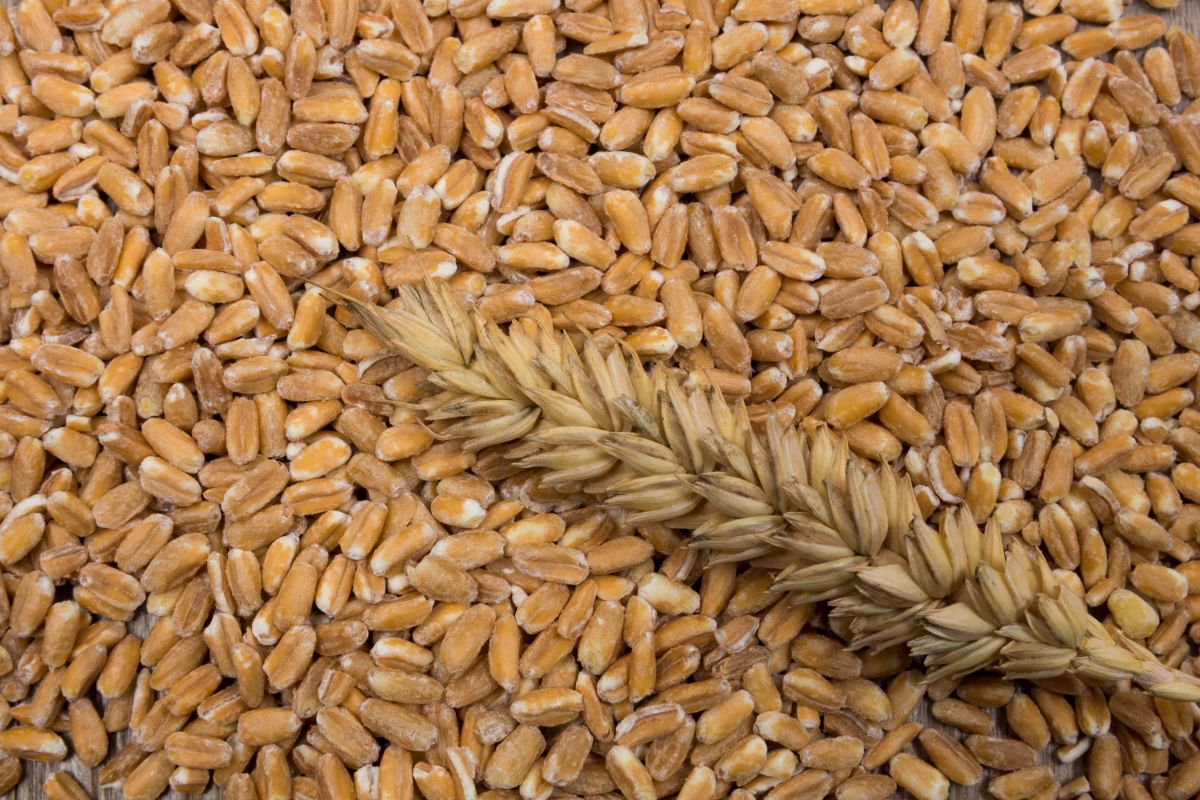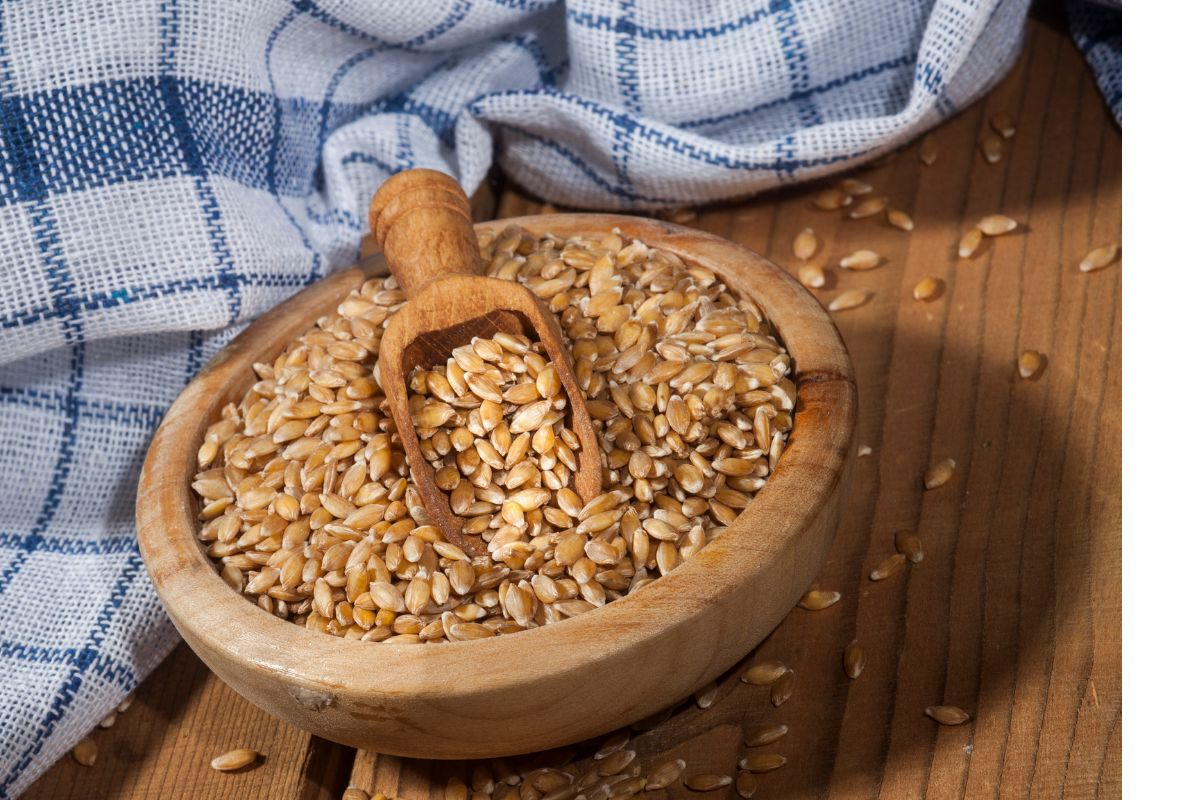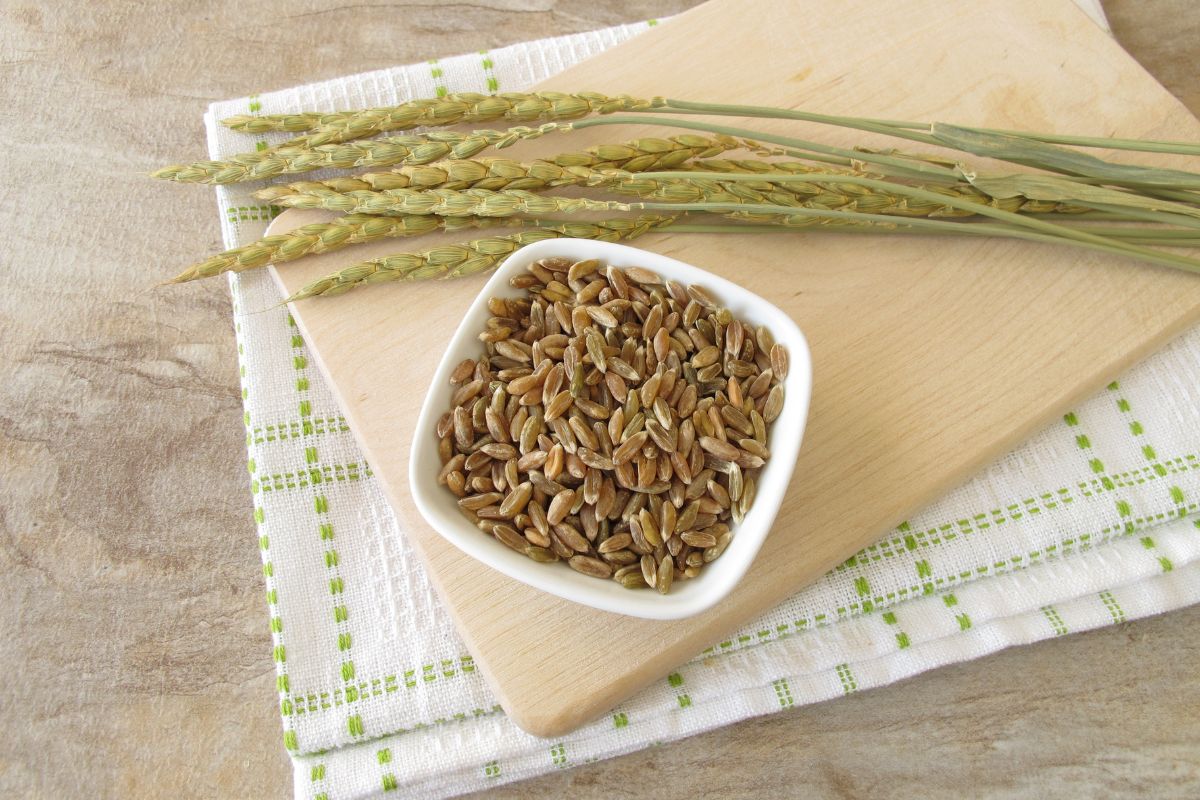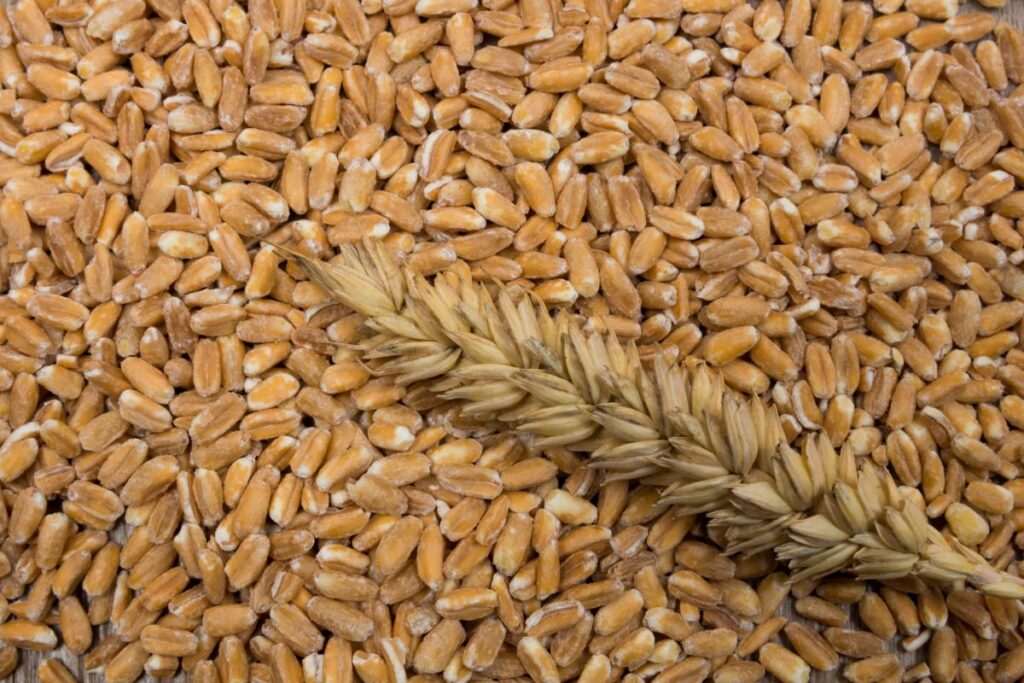Similar to wheat, spelt is an ancient grain. It has been used to make foods, such as bread, for many thousands of years.
Although spelt had lost its popularity with the rise of wheat and barley as main food source, spelt is slowly receiving new interest.

But can you eat spelt when you are on a gluten-free diet? We find out what spelt is and whether it contains gluten.
What Is Spelt?
Spelt (Triticum spelta) is a variety of wheat plant which has been cultivated for many thousands of years, mainly in the Near East.
Today, spelt is usually farmed in parts of Spain, Central Europe and some parts of the United States.
Surprisingly, spelt hasn’t changed or developer much in this time, and it is almost the same wheat today as it was in the past.
In comparison, other wheat varieties have seen an entire range of different evolutions in breeding to increase the gluten content of the grain.
The more gluten there is in a grain, the more effective it is in baking or cooking. For this reason, spelt is often found in flour form but it can also be used as a cereal grain.
Is Spelt Gluten-Free?
There is much confusion about spelt and its gluten content. This mainly arises because it is called an ancient grain, and many other ancient grains, such as millet, buckwheat, sorghum and quinoa are gluten-free.
The simple answer however is that spelt is not gluten-free.
As spelt is a close relative of wheat, it still does contain gluten which makes it unsafe for anyone with celiac disease or a gluten allergy.
How Much Gluten Does Spelt Contain?

Sometimes also known as dinkel wheat or hulled wheat, spelt is wrongly considered to have a slightly lower gluten content than traditional wheat because it has not been bred as much in the last thousand years.
However, researchers found that the gluten content in spelt was in fact slightly higher than in common wheat.
In addition to that, another study with people suffering from celiac disease found that the celiac antibodies found in spelt are much more reactive than normal wheat.
This means that spelt causes a much more severe autoimmune reaction in everyone with celiac disease.
It’s important that even small amount of spelt can be dangerous for celiac sufferers, so it is best avoided.
Is Spelt Safe When You Have A Wheat Allergy?
If you suffer from a wheat allergy but you can eat gluten, then spelt may be a suitable alternative.
A research study found that only a third of people with a wheat allergy also have a spelt allergy.
Saying this, it is important to be careful and check with your doctor before you start eating spelt. He may also run an allergy test first before you start eating spelt.
Health Benefits Of Spelt
While spelt should be avoided by those who suffer from a gluten sensitivity, wheat intolerance or celiac disease, spelt is generally a healthy grain.
Spelt may offer some health benefits that are very similar to wheat. It contains a large amount of antioxidants.
Antioxidants support the heart, brain and liver. They also boast anti-inflammatory and anti-diabetes properties.
How To Use Spelt
You can use spelt in almost any recipes where you use wheat. These whole spelt berries are ideal as a side dish or as addition to salads and cold dishes.
Whole spelt grains can even be sprouted to increase their mineral content and reduce the phytic acid content.
The best way to prepare spelt is by soaking it in water overnight, and then the grains properly before cooking them.
In order to cook spelt, you will need to use three cups of water for each cup of spelt.
Bring the water to a boil and add your spelt grains in. Spelt does take a relatively long time to cook, so just cover the pot with a lid and leave them for at least forty minutes.
Then, try one or two grains to check that they are soft and chewy. Once the spelt is done, you can drain it and serve immediately.
Potential Risks Of Spelt

Although spelt does offer a range of great health benefits, there are also some risks involved with eating spelt.
Wheat Allergy Complications Or Gluten Intolerance
As mentioned, spelt is a type of wheat so it isn’t gluten free. This can cause complications for those who have a wheat allergy, gluten intolerance or celiac disease.
Can Trigger Irritable Bowel Syndrome
Spelt contains a specific type of carbohydrates that can cause irritable bowel syndrome (IBS).
Blood Sugar Increase
Although whole grain spelt can reduce the risk of fluctuating blood sugar, refined spelt has exactly the opposite effect.
Affects Nutrient Absorption
Similar to wheat, spelt contains phytic acid. This can interrupt the functioning absorption of important nutrients in our body.
Spelt Substitutes And Alternatives
If you feel better by avoiding spelt completely, then there are a number of good alternatives that you can include in your diet.
You will find plenty of gluten-free flour which make for a substitute when baking your favorite cookies, bread or other goodies.
One popular spelt alternative is amaranth which is usually available in stores as a flour or grain.
You can use it in baking in exactly the same way as you would use your normal flour. Amaranth grains are also ideal for sprinkling over salads, soups or stews.
Other popular gluten-free grains include buckwheat, sorghum, quinoa and tapioca. They can also be used in a celiac-friendly diet.
When you are looking for an alternative grain that doesn’t contain gluten, then all types of rice and corn are suitable as well.
They allow you to avoid any wheat, and still add a little bit of versatility and flavor to your dishes.
It’s worthwhile pointing out here as well that you should look for products that are specifically labelled gluten-free.
Also check out any indication of cross-contamination with gluten-containing grains as this can also pose a health risk.
Final Thoughts
While spelt is not gluten-free and should therefore be avoided by everyone with a gluten sensitivity, it can be a healthy wheat alternative (You might be interested in checking out Is Bulgur Gluten-Free? here).








